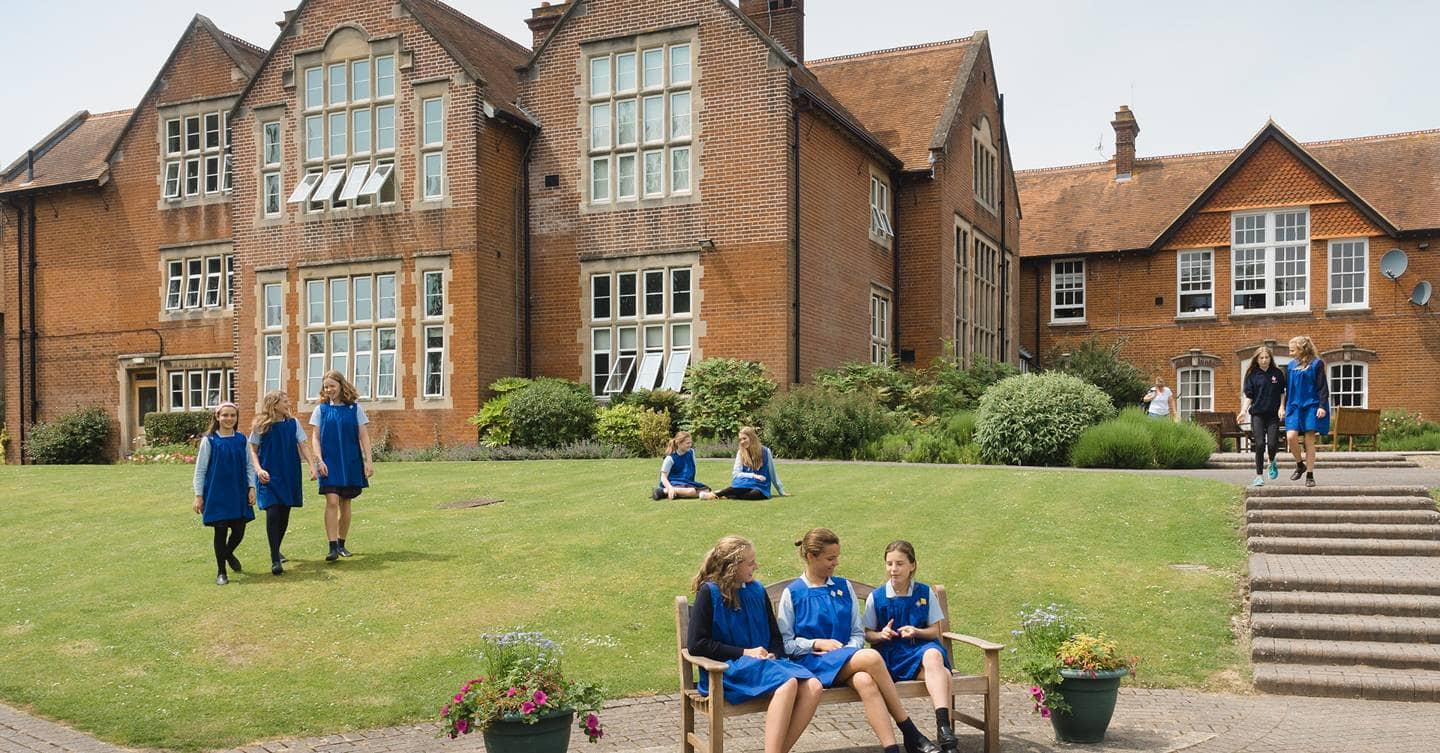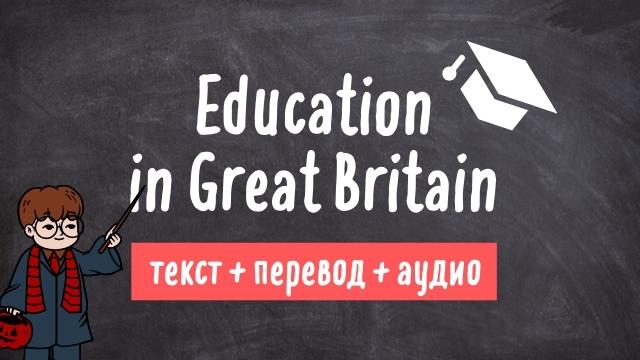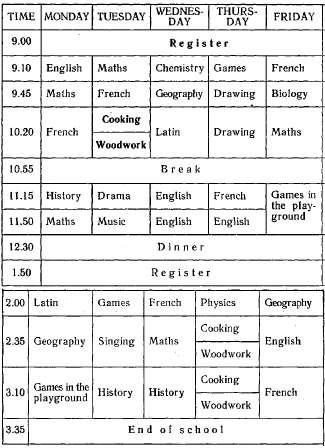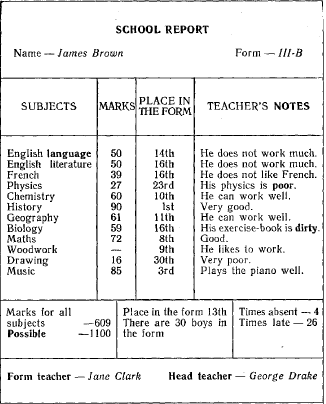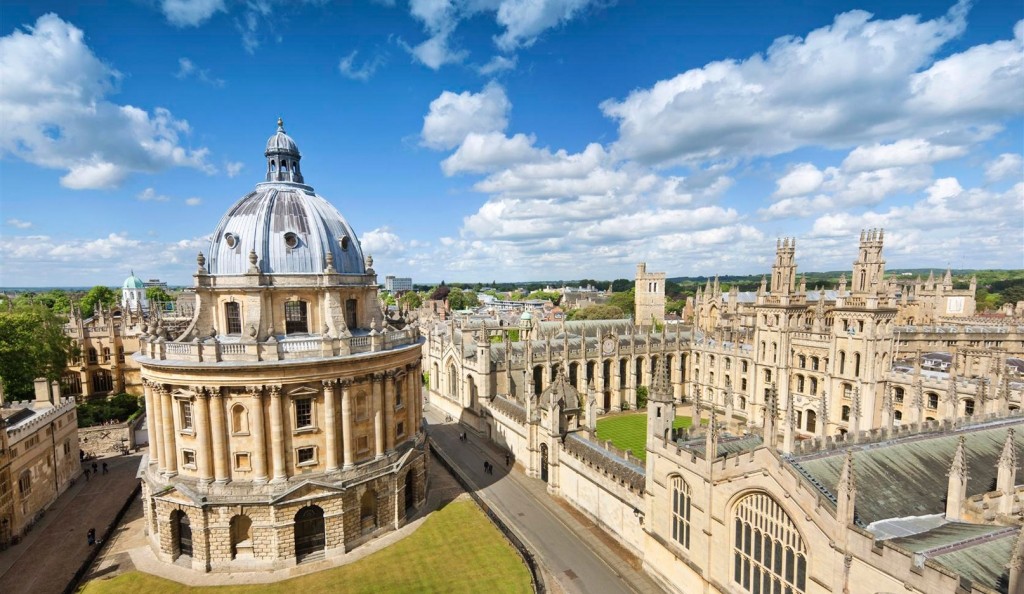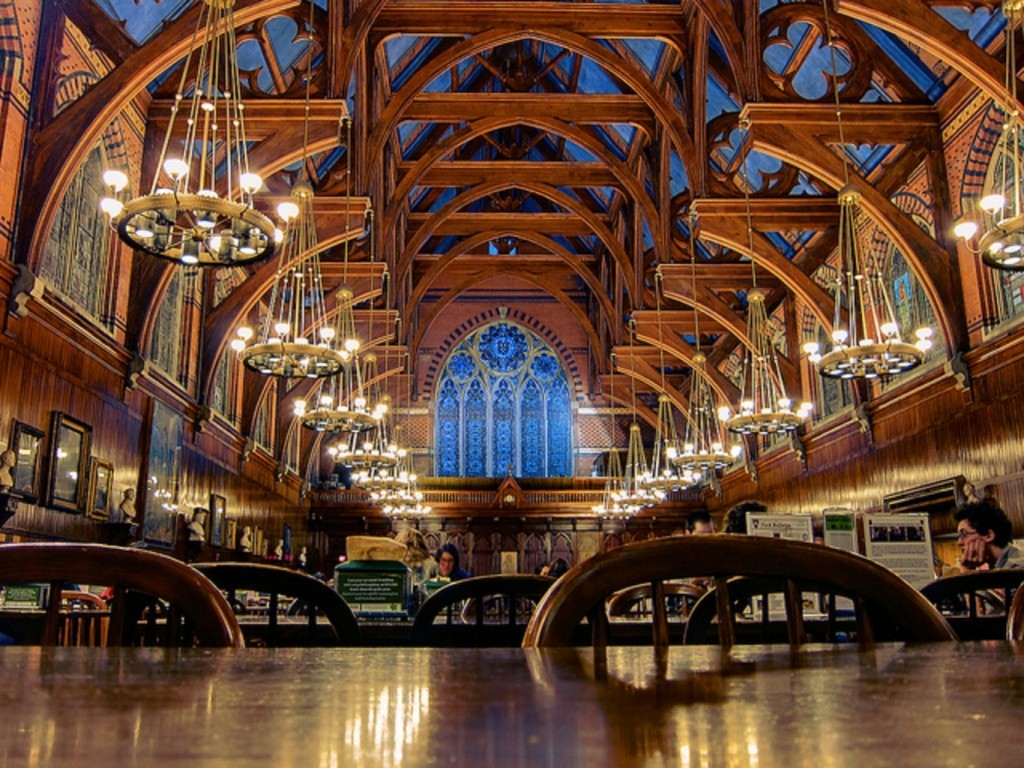Schools in England and Wales accept children aged 5 years. Many of them finish school when they are 16 years old. Some try to start an independent life and begin to work on the job. Other children go to various colleges after school. Those who want to get a university education continue their studies at the school for another 2 years and enter higher education institutions.
In public schools, education is free for most children. The most amazing thing is that English schools do not have numbers, they have their own names. For example, St. Patrick’s School or the Green Park School.
The school year for English children begins in September, but never begins on Monday. The British believe that Monday is a bad day for any undertakings or activities, so English schools begin to work on the first Tuesday of September.
Young children at the age of 5 go to primary school, and study there for 7 years. They are taught to read, write, develop mathematical skills, read fairy tales and fables to them. They also play a lot and spend a lot of time outdoors. Children in primary school do not wear school uniforms. When they are 12 years old, they move to the middle link.
High school is also free. Middle-level students wear school uniforms and study 5 days a week. Every day they have five lessons. Each week they study up to 19 school subjects.
Their school day ends at 4 o’clock. After the first lesson, they have a 20-minute break, and after the third lesson, a long lunch break. In English schools, the academic year consists of three quarters, after which the holidays begin. Summer holidays start in July. They also have Easter and Christmas holidays.
Перевод
Школы в Англии и в Уэльсе принимают детей в возрасте 5 лет. Многие из них заканчивают школу когда им исполняется 16 лет. Некоторые пробуют начать самостоятельную жизнь и приступают к поискам работы. Другие дети после школы поступают в различные колледжи. Те, кто хочет получить университетское образование продолжают учёбу в школе ещё 2 года и поступают в высшие учебные заведения.
В государственных школах образование для большинства детей бесплатное. Самое удивительное то, что английские школы не имеют нумерации, у них есть свои названия. Например школа Святого Патрика или школа Зелёного Парка.
Учебный год для английских детей начинается в сентябре, но никогда не начинается с понедельника. Англичане считают, что понедельник неудачный день для любых начинаний или дел, поэтому английские школы начинают работать в первый вторник сентября.
Маленькие дети в возрасте 5 лет идут в начальную школу, и обучаются там в течение 7 лет. Их учат чтению, письму, развивают математические навыки, читают им сказки и басни. Также они очень много играют и проводят много времени на свежем воздухе. Дети в начальной школе не носят школьную форму. Когда им исполняется 12 лет они переходят в среднее звено.
Средняя школа тоже является бесплатной. Ученики в среднем звене носят школьную форму и учатся 5 дней в неделю. Каждый день у них бывает по пять уроков. Каждую неделю они изучают до 19 школьных предметов.
Школьный день у них заканчивается в 4 часа. После первого урока у них бывает 20 минутная перемена, а после третьего урока длинный ланч брейк. В английских школах учебный год состоит из трех четвертей, после которых наступают каникулы. Летние каникулы начинаются в июле. Также у них есть Пасхальные и Рождественские каникулы.
Школы в Англии и в Уэльсе — 5.0 out of
5
based on
2 votes
Представлено сочинение на английском языке Образование в Великобритании/ Education in Great Britain с переводом на русский язык.
| Education in Great Britain | Образование в Великобритании |
| Educational system in Britain has strict quality standards. It is compulsory for all children aged 5 to 16 to study. British education is divided into two segments: state schools, which are free of charge, and private schools, which are paid for. Over 90% of children attend state public schools. Also Great Britain has two different systems of education: one is used in England, Wales and Northern Ireland and the other is used in Scotland. | Образовательная система в Британии имеет строгие стандарты качества. Всем детям от 5 до 16 лет обязательно нужно учиться. Британское образование подразделяется на два сегмента: государственные школы, которые бесплатны, и частные школы, которые платны. Более 90% детей посещают государственные общеобразовательные школы. Также в Великобритании есть две различные системы образования: одна применима в Англии, Уэльсе и Северной Ирландии, а другая применима в Шотландии. |
| The most popular schools in Britain are Boarding Schools. These are institutions where kids not only study, but live. In Britain, as in many other countries, there is a pre-school education, i.e. there are nursery schools for children from 2 to 7. After the nursery school, kids attend Junior Schools till they are 13. During these years children have to pass an obligatory exam, called SAT (Standard Assessment Tests) twice. In case, they pass it successfully, they can easily transfer to the next step, which is called Senior School. This school is for children aged 13 to 18, and it prepares its pupils for the special exam called GCSE (General Certificate of Secondary Education). It is also the time for future profession choice. | Самыми популярными в Британии являются школы-пансионы. Это учебные заведения, в которых дети не только учатся, но и живут. В Британии, как и во многих других странах, есть дошкольное образование, т.е. есть детские сады для детей от 2 до 7 лет. После детского сада, дети ходят в младшую школу до 13 лет. За эти годы дети должны пройти обязательный экзамен, под названием SAT (Стандартный Оценочный Тест) дважды. В случае, если они сдадут его успешно, они могут легко перейти на следующую ступень, которая называется старшей школой. Эта школа для детей от 13 до 18 лет, и она готовит своих студентов к специальному экзамену GCSE (Общий Сертификат о Среднем Образовании). Это также время для выбора будущей профессии. |
| The main subjects at British schools are English, Mathematics, Geography, Art, Science, History, Physical Education, Information Technology, Music, Religious education and others. According to the classification of schools by gender, education in Britain can be divided into three types of institutions: mixed schools, schools for girls and schools for boys. | Основными предметами в Британских школах являются: английский язык, математика, география, искусство, наука, история, физкультура, информатика, музыка, религиозное образование и другие. В соответствии с классификацией школ по половой принадлежности, образование Великобритании можно разделить на три типа учреждений: смешанные школы, школы для девочек и школы для мальчиков. |
| Higher education in Great Britain is quite expensive, especially for foreign students. However, there are sometimes tuition grants for talented students. | Высшее образование в Великобритании довольно дорогое, особенно для иностранных студентов. Однако иногда бывают гранты на обучение для талантливых студентов. |
Образование в Великобритании (Education in Great Britain) — одна из частых тем для сочинений, докладов, топиков по английском языку. Здесь вы найдете текст на английском языке о системе образования в Великобритании. Текст сделан с переводом и аудио. Сначала идет вариант «текст + аудио», затем «текст + перевод».
Ниже представлен текст про систему образования в Великобритании + аудио. Еще ниже вы увидите текст с параллельным переводом.
Скачать аудио.
Education in the United Kingdom
The system of education in the United Kingdom is based on a well-developed approach that allows children to gain knowledge stepwise. There are four stages of education in this country: primary education (from 4 or 5 up to 11 years old), secondary education (from 11 up to 16 years old), further education, and higher education. Children are obliged to attend primary (or elementary) and secondary schools to develop the proper communication and learning abilities, organizational skills, self-discipline, and enthusiasm. Further education and higher education are not compulsory.
The primary school divides students into two levels: infants, aged 5-7, and juniors, aged 7-11. At this stage, the major goal is to give children the very basics of education. Kids learn to read, write, and do sums.
The secondary school differs from the primary school as its program is more complicated. Several subjects should be studied by all students, including English, Mathematics, Social Sciences, Humanities, and Modern Languages and Literature. Moreover, there are optional subjects for every student depending on their interests. They include various Arts and Sciences categories of studies.
In this country, both free and paid schools are available. State schools are financed by the government, and students do not pay for their education. Independent schools require parents to pay for their children’s classes.
One can find certain differences in the overall functioning of the system of education in England, Scotland and Wales, because of different schooling policies that affect this scheme.
Children should pass a standard exam after high school graduation. The results of the examination will show their eligibility to continue their education in universities.
Further education includes all types of college-level programs and courses chosen by a student after the completion of the period of compulsory education. At this stage, students are offered basic skills training options, and vocational education necessary for employment in a selected occupation. The key goal is to prepare young people both for their future job and for their application for a higher education institution if they wish to.
The higher level of education incorporates university courses that give students a chance to get their diplomas and national certificates. There are different levels of courses related to the study in universities, namely, postgraduate (Bachelor’s, Master’s, and Ph.D. degrees) and undergraduate courses.
In general, the UK education system has gained a good reputation worldwide due to the highest educational standards and quality of knowledge it provides to students and the entire community.
Текст на английском с переводом: Education in Great Britain — Образование в Великобритании
Тот же самый текст, что и выше, но с переводом. Воспользуйтесь переводом сочинения об образовании в Великобритании, если вам встретятся непонятные слова и обороты.
| Текст на английском языке | Перевод |
|---|---|
| The system of education in the United Kingdom is based on a well-developed approach that allows children to gain knowledge stepwise. | Образовательная система в Великобритании основана на хорошо развитом подходе, позволяющем детям получать знания поэтапно. |
| There are four stages of education in this country: primary education (from 4 or 5 up to 11 years old), secondary education (from 11 up to 16 years old), further education, and higher education. | В этой стране четыре этапа обучения: начальное образование (от 4-5 до 11 лет), среднее образование (от 11 до 16 лет), дальнейшее образование и высшее образование. |
| Children are obliged to attend primary (or elementary) and secondary schools to develop the proper communication and learning abilities, organizational skills, self-discipline, and enthusiasm. | Дети обязаны посещать начальную и среднюю школу, чтобы развить правильные навыки общения и учебы, организационные навыки, выработать самодисциплину и энтузиазм. |
| Further education and higher education are not compulsory. | Дальнейшее и высшее образование необязательны. |
| The primary school divides students into two levels: infants, aged 5-7, and juniors, aged 7-11. At this stage, the major goal is to give children the very basics of education. | В начальной школе ученики делятся на два уровня: «infants» (букв. «малыши») — 5-7 лет, и «juniors» (букв. «младшие») — 7-11 лет. На этом этапе главная цель — дать детям самое основное образование. |
| Kids learn to read, write, and do sums. | Дети учатся читать, писать и считать. |
| The secondary school differs from the primary school as its program is more complicated. | Средняя школа отличается от начальной, так как ее программа сложнее. |
| Several subjects should be studied by all students, including English, Mathematics, Social Sciences, Humanities, and Modern Languages and Literature. | Все ученики должны изучать несколько предметов, включая английский язык, математику, науки об обществе, гуманитарные науки, современные языки и литературу. |
| Moreover, there are optional subjects for every student depending on their interests. | Более того, существуют факультативные предметы для учеников, в зависимости от их интересов. |
| They include various Arts and Sciences categories of studies. | В их число входят различные дисциплины об искусстве и науке. |
| In this country, both free and paid schools are available. | В этой стране доступно как бесплатное, так и платное образование. |
| State schools are financed by the government, and students do not pay for their education. | Государственные школы обеспечиваются правительством, и ученики не платят за свое образование. |
| Independent schools require parents to pay for their children’s classes. | В частных школах родителям необходимо платить за уроки их детей. |
| One can find certain differences in the overall functioning of the system of education in England, Scotland and Wales, because of different schooling policies that affect this scheme. | Можно найти различия в общей работе образовательных систем в Англии, Шотландии и Уэльсе. Причина тому — различия в правилах в области образования, влияющие на эту схему. |
| Children should pass a standard exam after high school graduation. | После окончания старших классов дети должны сдать стандартный экзамен. |
| The results of the examination will show their eligibility to continue their education in universities. | Результаты экзамена определяют их доступ к продолжению образования в университетах (т. е. показывают, можно им учиться в университетах или нет). |
| Further education includes all types of college-level programs and courses chosen by a student after the completion of the period of compulsory education. | Дальнейшее образование включает все типы программ уровня колледжа и курсы, которые ученики выбирают после обязательного периода обучения. |
| At this stage, students are offered basic skills training options, and vocational education necessary for employment in a selected occupation. | На этом этапе ученикам предлагают изучать основы различных профессий, профессиональное образование, необходимое для работы в выбранной области. |
| The key goal is to prepare young people both for their future job and for their application for a higher education institution if they wish to. | Ключевая цель — подготовить молодежь как к будущей работе, так и к поступлению в высшее учебное заведение, если они этого захотят. |
| The higher level of education incorporates university courses that give students a chance to get their diplomas and national certificates. | Высшее образование включает обучение в университетах, которые дают возможность студентам получит дипломы и сертификаты государственного образца. |
| There are different levels of courses related to the study in universities, namely, postgraduate (Bachelor’s, Master’s, and Ph.D. degrees) and undergraduate courses. | Существуют различные уровни университетских курсов, в частности, аспирантура — степень бакалавра, магистра и Ph.D. (доктор философии/кандидат наук), а также бакалавриат (см. примечания). |
| In general, the UK education system has gained a good reputation worldwide due to the highest educational standards and quality of knowledge it provides to students and the entire community. | В целом, образовательная система Великобритании заработала хорошую репутацию по всему миру, в связи с высшими стандартами образования и качества знаний, которые она обеспечивает студентам и всему обществу. |
Примечания:
- Обязательными этапами образования являются primary education (4-5 — 11 лет), secondary education (11 — 16 лет). Если сравнивать с российскими реалиями, то это аналог нашей средней школы.
- Futher education — это уже, по сути, начальное профессиональное образование.
- Undergraduate course — это учебный курс студентов университетов. По окончании, как правило, студенты получают степень бакалавра (Bachelor’s Degree). То есть, «по-нашему» это бакалавриат (соответствие неточное, разумеется).
- Postraduate — это «послевузовское обучение», аспирантура. В тексте написано, что степень бакалавра относится к этой ступени. Имеется в виду, что начинают postgraduate education, как правило, имея степень бакалавра.
- Ph.D. — это буквально «доктор философии», но это историческое название, в наше время к философии оно уже напрямую не относится. По сути, это что-то вроде нашего кандидата наук.
Здравствуйте! Меня зовут Сергей Ним, я автор этого сайта, а также книг, курсов, видеоуроков по английскому языку.
Подпишитесь на мой Телеграм-канал, чтобы узнавать о новых видео, материалах по английскому языку.
У меня также есть канал на YouTube, где я регулярно публикую свои видео.
Сегодняшней темой будут тексты про английские школы. Почитаем об английских школах:
Schools in England
Schools in England are not the same as in our country. Children begin to go to school when they are five years old. From five to seven they are in infant schools An infant school is like a kindergarten. The children draw and paint, they sing and listen to stories which the teacher reads to them. They also play games. In these schools they begin to learn to read and write.
From seven to eleven children in England go to a junior school. Here they all learn to read and write and do mathematics.
From eleven to sixteen boys and girls in England go to a secondary school. They begin to learn in form one. The sixth form is the last form in this school. They have many subjects in their time-table.
In England schoolchildren do not go to schools on Saturdays and Sundays.
Переведем с английского:
Школы в Англии
Школы в Англии не такие, как в нашей стране. Дети начинают ходить в школу в пять лет. С пяти до семи лет они в начальной школе. Начальная школа похожа на детский сад. Дети рисуют и рисуют красками, они поют и слушают рассказы, которые учитель читает им. Они также играют в игры. В этих школах они начинают учиться читать и писать.
С семи до одиннадцати лет дети в Англии ходят в младшую школу. Там они учатся читать и писать, и делать математику.
С одиннадцати до шестнадцати лет мальчики и девочки в Англии ходят в среднюю школу. Они начинают учиться в первом классе. Шестой класс — последний класс в этой школе. У них много предметов в их расписании уроков.
В Англии школьники не ходят в школу по субботам и воскресеньям.
Да, принцип учебы значительно отличается от нашего. Теперь рассмотрим пример расписания уроков для учеников третьего класса английской школы:
School Time-Table
Do you like English? A lot of people in our country learn English at school. But in England many children learn French or Latin at school. Some children learn German, Latin or Russian.
Here is a time-table at an English school for the third form. Look at the lessons. Do you have these lessons in your school too?
Переведем:
Школьное расписание уроков
Вы любите английский? Многие люди в нашей стране учат английский в школе. Но в Англии многие дети учат французский или латынь в школе. Некоторые дети учат немецкий, латынь или русский.
Здесь расписание уроков в английской школе для третьего класса. Посмотрите на уроки. У вас тоже есть в школе эти уроки?
Ну и само расписание можно посмотреть на картинке выше. Переводить его на русский я не буду, так как в нем и так все предельно ясно.
И в заключение, посмотрим пример школьного табеля английского школьника:
School Report
You get good marks and bad marks in your school subjects. Schoolchildren in England get marks too. You get a three and a schoolboy in England gets a fifty-five or sixty. You get a four and he gets a seventy-five or eighty. You get a five and he gets ninety-seven or a hundred.
Табель успеваемости
Вы получаете хорошие оценки и плохие оценки по вашим школьным предметам. Школьники в Англии тоже получают оценки. Вы получаете тройку, и школьник в Англии получает 55 или 60. Вы получаете четверку, и он получает 75 или 80. Вы получаете пятерку, и он получает 97 или 100.
Содержимое самого табеля успеваемости переводить тоже не буду. Там все и так можно понять. А на сегодня все.
- Главная
- Топики
- Образование
English educational system is quite different from what we have in Russia. It is class-divided. There some state schools and some private ones.
State schools are infant, junior or secondary. British boys and girls begin to go to school at the age of 5. They draw pictures, sing songs, listen to the stories and tales. British children begin to read and write when they enter the infant schools. Young children are divided into two groups, according to their mental abilities. Children leave infant schools when they are 7. Then they go to study at junior schools where they learn to write, read and do mathematics. Their school subjects are History, English, Geography, Arithmetic, Arts, Music, Swimming and some others. When the pupils enter the junior schools they pass abilities test. According to the results of the test and thus their intellectual potential they are divided into three groups. Boys and girls spend four years studying at junior schools.
Then they pass examinations again and enter the secondary schools. There different types of secondary schools in Britain. They are: grammar schools, modern schools and comprehensive schools. English boys and girls attend secondary schools from 11 till 16. They don’t go to schools on Saturdays and Sundays. In the modern schools pupils do not learn foreign languages. In grammar schools pupils receive better theoretical education. And the other school type is comprehensive schools. Almost all secondary pupils ( around 90 per cent ) go there.
There are also private schools in England. Boys and girls do not study together there. It is common that aristocracy sons go to these schools and parents pay a lot of money for their education. These schools are called public. Independent and preparatory schools are private ones too. They prepare children for public schools and take money for the training. The teachers of the private schools can pay more attention to each of the pupils personally. It is possible to enter the best English universities after leaving public schools. After finishing grammar schools pupils have good knowledge and may continue studying in colleges and universities.
English pupils wear school uniform. It is one of the oldest country’s traditions. A boy’s uniform includes a school cap, a tie and a blazer. A girl’s uniform consists of a hat, a coat, a skirt and a blouse. The uniforms vary from school to school. Usually, they are dark.
Версия для печати
Другие топики по теме:
- The Educational System of Great Britain
- Homework
- Learning languages
- Standard English and Its Dialects
- The way you are taught English
- Education in the USA (2)
- Foreign Languages in Our Life
- Studying English
- American Schools
- How do I Learn English
- Весь список
Сочинение на тему«Школьное образование в Великобритании»на английском языке с переводом на русский язык |
|
School Education in Great Britain |
Школьное образование в Великобритании |
|
The educational system of Great Britain is one of the most quality in the world. This country is famous for universities with centuries-old academic traditions (for example, Oxford and Cambridge Universities), large libraries, and improved science. Due to great research and professional possibilities, many foreign students dream about studying in the UK. |
Образовательная система Великобритании – одна из самых качественных в мире. Эта страна знаменита университетами с вековыми академическими традициями (например, университетами Оксфорда и Кембриджа), крупными библиотеками и развитой наукой. Благодаря огромным исследовательским и профессиональным возможностям, многие иностранные студенты мечтают об учёбе в Соединённом Королевстве. |
|
However, higher education is based on the school one, stable and strong as well. Strict discipline and respect for traditions (for example, some British schools offer only separate education) coexist with innovative pedagogy. |
Однако высшее образование основано на школьном, также стабильном и сильном. Строгая дисциплина и уважение к традициям (например, некоторые британские школы предлагают только раздельное обучение) сосуществуют с новаторской педагогикой. |
|
The education has a clear structure and begins early, sometimes since 3 years: children may visit preschool institutions where they learn to read, count, draw, etc. From 5 years, this process is obligatory, so all the children go to primary school after biennial preparation. Secondary school lasts from 11 to 16 years and includes a wide circle of subjects (English and literature, a foreign language, mathematics, history, geography, etc.). A student, together with the family, can vary and supplement the academic plan. Regular state tests finish with the exam GCSE confirming the certificate of secondary education. |
Образование имеет чёткую структуру и начинается рано, иногда с 3 лет: дети могут посещать дошкольные учреждения, где учатся читать, считать, рисовать и т.д. С 5 лет этот процесс обязателен, поэтому все дети идут в начальную школу после двухлетней подготовки. Средняя школа продолжается с 11 до 16 лет и включает широкий круг предметов (английский язык и литература, иностранный язык, математика, история, география и др.). Учащийся вместе со своей семьёй может варьировать и дополнять учебный план. Регулярные государственные тесты завершаются экзаменом GCSE, подтверждающим сертификат о среднем образовании. |
|
Afterward, a student can enter a college of further education to get a practical profession or to stay at school for another 2 years and study profile subjects more deeply preparing himself to the university. |
Впоследствии учащийся может поступить в колледж дальнейшего образования, чтобы получить прикладную профессию, или остаться в школе ещё на 2 года и глубже изучать профильные предметы, готовясь к университету. |
|
Parents choose a state or a private, more prestigious school (usually it is a boarding school) for their child. Some private schools give perfect knowledge (for example, Brighton College or St Paul’s School), but all of them are paid. Nevertheless, any British school guarantees a high-level education and excellent prospects. |
Родители выбирают для ребёнка государственную или частную, более престижную школу (обычно это пансион). Некоторые частные школы дают прекрасные знания (например, Brighton College или St Paul’s School), но все они платные. Тем не менее, любая британская школа гарантирует образование высокого уровня и отличные перспективы. |
All British children must stay at school from the age of 5 until they are 16. Many of them stay longer and take final examinations when they are 17 or 18. Before 1965 all children of state schools had to go through special intelligence tests. There were different types of state secondary schools and at the age of 11 children went to different schools in accordance with the results of the tests.
State schools are divided into the following types:
Grammar schools. Children who go to grammar schools are usually those who show a preference for academic subjects, although many grammar schools now also have some technical courses.
Technical schools. Some children go to technical schools. Most courses there are either commercial or technical.
Modern Schools. Boys and girls who are interested in working with their hands and learning in a practical way can go to a technical school and learn some trade.
Comprehensive schools. These schools usually combine all types of secondary education. They have physics, chemistry, biology laboratories, machine workshops for metal and woodwork and also geography, history and art departments, commercial and domestic courses.
There are also many schools which the State does not control. They are private schools. They charge fees for educating children, and many of them are boarding schools, at which pupils live during the term time.
After leaving school many young people go to colleges of further education. Those who become students at Colleges of Technology (called «Techs») come from different schools at different ages between 15 and 17. The lectures at such colleges, each an hour long, start at 9,15 in the morning and end at 4,45 in the afternoon.
Topical Vocabulary
— to stay at school
зд.: учиться в школе
to take final examinations
сдавать выпускные экзамены
a state school
государственная школа
to go through special intelligence tests
сдавать специальный тест на уровень интеллектуального развития
a secondary school
средняя школа
in accordance with the results of tests
в соответствии с результатами тестов
— a grammar school
«грамматическая» школа
to show a preference for academic subjects
проявлять склонности к академическим дисциплинам
technical courses
технические предметы
— a technical school
«техническая» школа
— a modern school
«современная» школа
a trade
профессия, ремесло
— a comprehensive school
общеобразовательная школа
a machine workshop for metal and woodwork
мастерская с металло- и деревообрабатывающими станками
a domestic course
домоведение
— a private school
частная школа
to charge fees for educating smb.
брать деньги за чье-либо образование
a boarding school
интернат
— a college of further education
колледж дальнейшего образования
a College of Technology
технический колледж
Answer the questions:
- At what ages must British children stay at school?
- What groups are state schools divided into?
- What is a private school?
- What do many young people do after leaving school?
Translate into English:
- Британские дети должны учиться в школе с 5 до 16 лет.
- Учащиеся государственных школ сдавали экзамены на уровень интеллектуального развития и шли в среднюю школу в соответствии с его результатами.
- В «грамматических» школах учились дети, которые обнаруживали склонность к академическим предметам.
- «Технические» школы предлагают (offer) коммерческие или технические курсы.
- В «современных» школах дети получали профессию.
- В общеобразовательных школах сочетаются все виды образования.
- Государство не контролирует частные школы.
- Обычные частные школы и частные школы-интернаты берут плату за обучение.
- После школы молодые люди могут поступать в колледжи дальнейшего образования.
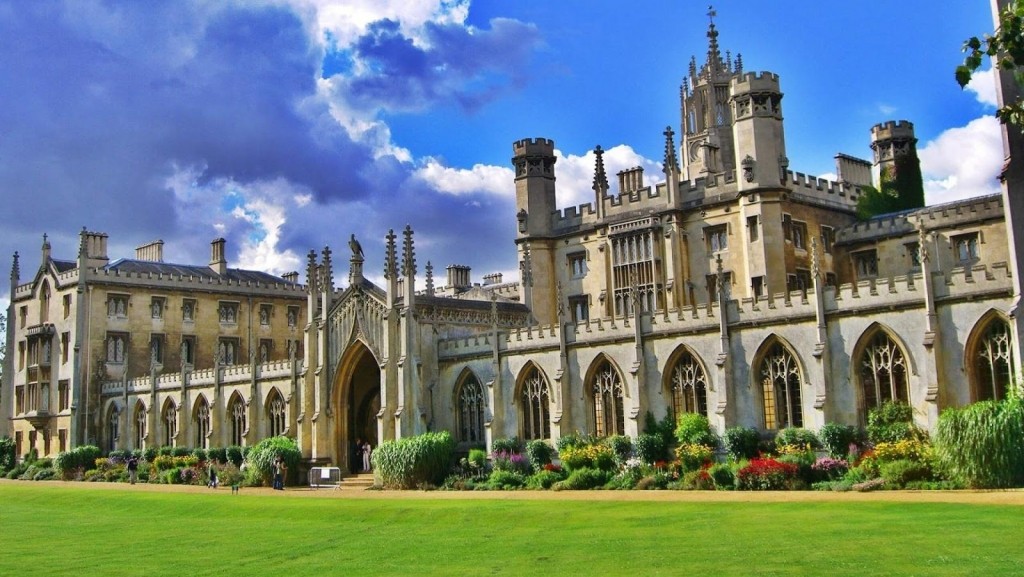
Образование в Великобритании (Education in Great Britain) топик по английскому, который поможет вам разобраться в непростой системе британских образовательных учреждений.
Топик по английскому Образование в Великобритании (Education in Great Britain) – очень интересная тема, потому что позволяет сравнить систему образования британцев с другими.
Образование в Великобритании (Education in Great Britain) топик по английскому, который также поможет сформировать представление о том, что и где изучает ваш британский собеседник, а также какие экзамены ему предстоит сдавать.
Топик по английскому Образование в Великобритании (Education in Great Britain) рассказывает не только о школах, но и об известных высших учебных заведениях Великобритании, а также на какие типы подразделяются университеты в Великобритании.
Текст топика «Education in Great Britain»
Education in Great Britain is compulsory and free for children from 5 to 16 years old. Some children attend kindergartens from the age of 3. However, it’s not compulsory. In kindergartens, children learn very simple things like colours, numbers and letters. They also play games and sleep after lunch. There is always someone keeping an eye on children, no matter what they do.
Compulsory education lasts 6 years; it begins at the age of 5 when children go to primary school. There are two periods: pupils from 5 to 7 years old attend infant schools and pupils from 7 to 11 years old attend junior schools.
The classes in infant schools usually consist of playing games and getting acquainted with teachers, classrooms and desks.
When children are 7 years old, the real studying begins. Pupils don’t play very much, they have classes where they sit at desks, write, read and answer the questions.
Compulsory secondary education consists of 5 forms and lasts 5 years. It begins when children are 11 or 12 years old. Children study History, English, Art, Mathematics, Geography, Music, Science and Foreign languages. There are also lessons of Physical training and Religion. At the age of 7, 11 and 14 pupils take examinations in the core subjects – Mathematics, English and Science.
There are 3 types of state secondary schools in Great Britain: comprehensive schools, grammar schools and modern schools.
Comprehensive schools take pupils without exams. Children are divided into humanitarian or technical groups according to their abilities.
Grammar schools give secondary education of a very high standard. At the age of 11 children pass tests to enter a grammar school.
Modern schools don’t prepare pupils for universities, but for practical jobs.
At the age of 16, pupils take the General Certificate of Secondary Education examination. The subjects for the exams are chosen by the pupil in the third or in the forth form.
After GCSE pupils have a choice: either they go to a Further Education College or continue their education in the sixth form. Those who stay at school, study for 2 more years for Advanced Level Exams in two or three subjects. It is necessary to get a place at one of British universities.
There are also about 500 private schools in Great Britain, they are very expensive and only 5% of schoolchildren attend these schools. The most famous British public schools are Harrow, Eton and Winchester.
After leaving secondary school young people apply to a college, university or a polytechnic.
The Universities of Great Britain are divided into 5 types:
— The Old ones ( founded before the 19th century, e.g. Oxford, Cambridge);
— The Red Brick (founded in the 19th or 20th century);
— The Plate Glass (founded in 1960s);
— The Open University (students learn subjects and do exercises at home, then send their works to their tutors for checking);
— The New Universities (former polytechnic academies and colleges).
The University of Cambridge, The University of Oxford, London Imperial College, London School of Economics and London University College are considered the best universities.
Universities select students basing on their interviews and A-level results.
Students graduate from universities with the Degree of a Bachelor of Arts, Science or Engineering after three studying for three years. After that some students continue their studies for a Master’s Degree and then a Doctor’s Degree (PhD).
Перевод топика «Образование в Великобритании»
Образование здесь обязательное и бесплатное для детей от 5 до 16 лет. Некоторые дети с 3х лет ходят в детский сад. Однако, это не обязательно. В детских садах дети познают простейшие вещи, такие как цвета, цифры и буквы. Помимо этого, они играют и спят после обеда. За детьми всегда кто-то присматривает, чем бы они не были заняты.
Обязательное образование длится 6 лет, оно начинается с 5 лет, когда дети идут в начальную школу. Оно подразделяется на 2 периода: дети с 5 до 7 лет посещают школу для малышей, а дети с 7 до 11 лет ходят в начальную школу.
Уроки в младшей школе состоят из игр и знакомства с учителями, классам и партами.
Когда детям исполняется 7 лет, начинается настоящая учёба. Ученики не очень много играют, и отвечают на вопросы
Обязательное среднее образование состоит из 5 классов и длится 5 лет. Оно начинается, когда детям исполняется 11 или 12 лет. Дети изучают историю, английский язык, изобразительное искусство, математику, географию, музыку, естествознание и иностранные языки. Так же проводятся занятия по физической культуре и религии. В возрасте 7, 11 и 14 лет школьники сдают экзамены по основным предметам — математике, английскому языку и естествознанию.
Существует 3 вида государственных школ среднего образования: общеобразовательные школы, грамматические школы и современные школы.
Общеобразовательные школы принимают учеников без вступительных экзаменов. В таких школах дети обычно распределяются на гуманитарные и технические группы в зависимости от владения теми или иными навыками.
Грамматические школы дают среднее образование очень высокого уровня. Для поступления в такую школу необходимо сдать письменный экзамен в возрасте 11 лет.
Современные школы готовят детей не к поступлению в университет, а к рабочим специальностям.
В возрасте 16 лет ученики сдают экзамен на получение сертификата об окончании средней школы. Предметы для сдачи этого экзамена они выбирают в 3-м или 4-м классе.
После этого экзамена у учеников есть выбор: продолжить дальнейшее обучение в колледже, либо перейти в 6-й класс. Те, кто остаётся в школе, учатся ещё 2 года, после чего сдают экзамены уровня «А» по двум или трём предметам. Это необходимо для поступления в один из британских университетов.
В Великобритании также существует около 500 частных школ, обучение в них очень дорогое, поэтому их посещает только 5 % школьников. Наиболее известные частные школы Великобритании: Харроу, Итон и Винчестер.
После того как учащийся окончил школу, он может подать заявление в колледж, университет или техникум.
Британские университеты делятся на 5 типов:
— Древние (Основаны до 19 века, такие как Оксфорд и Кембридж);
— «Красного кирпича» (основаны в 19 или 20 веке);
— «Стеклянные» (основаны в 1960-х годах);
— Открытый университет (студенты изучают предметы и выполняют упражнения дома, затем посылают готовые задания преподавателям на проверку);
— Новые (бывшие политехнические академии и колледжи).
Кембридж, Оксфорд, Имперский колледж Лондона, Лондонская школа экономики и Университетский колледж Лондона считаются лучшими университетами.
Получение места в университете зависит от результатов собеседования и экзаменов уровня «А».
После трёх лет обучения студент выпускается из университета со степенью бакалавра гуманитарных, естественных или технических наук. После этого некоторые студенты продолжают учёбу, чтобы получить степень магистра, а затем и доктора наук.

